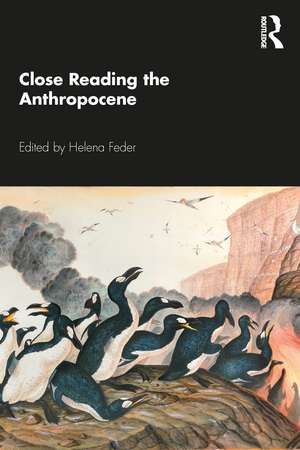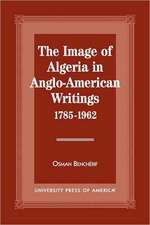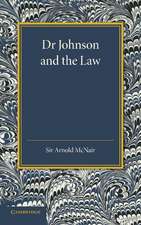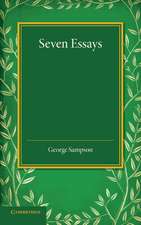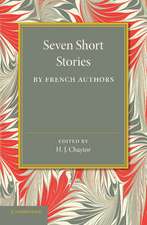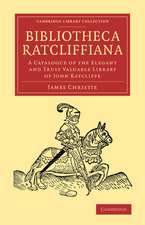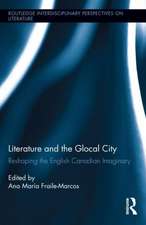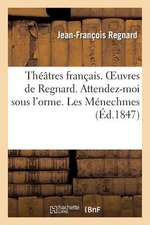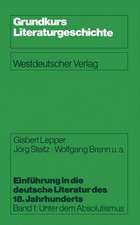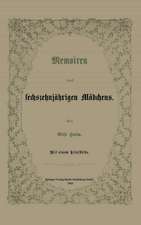Close Reading the Anthropocene
Editat de Helena Federen Limba Engleză Paperback – 10 iun 2021
The volume’s wide-ranging chapters are critical, often polemical, engagements with the question of the Anthropocene and the changing conversation around reading, interpretation, and textuality. They exemplify a range of work from across the globe and will be of great interest to scholars and students of the environmental humanities, ecocriticism, and literary studies.
| Toate formatele și edițiile | Preț | Express |
|---|---|---|
| Paperback (1) | 350.48 lei 6-8 săpt. | |
| Taylor & Francis – 10 iun 2021 | 350.48 lei 6-8 săpt. | |
| Hardback (1) | 1000.27 lei 6-8 săpt. | |
| Taylor & Francis – 10 iun 2021 | 1000.27 lei 6-8 săpt. |
Preț: 350.48 lei
Nou
Puncte Express: 526
Preț estimativ în valută:
67.07€ • 70.16$ • 55.71£
67.07€ • 70.16$ • 55.71£
Carte tipărită la comandă
Livrare economică 02-16 aprilie
Preluare comenzi: 021 569.72.76
Specificații
ISBN-13: 9780367466596
ISBN-10: 0367466597
Pagini: 202
Ilustrații: 10
Dimensiuni: 156 x 234 x 15 mm
Greutate: 0.31 kg
Ediția:1
Editura: Taylor & Francis
Colecția Routledge
Locul publicării:Oxford, United Kingdom
ISBN-10: 0367466597
Pagini: 202
Ilustrații: 10
Dimensiuni: 156 x 234 x 15 mm
Greutate: 0.31 kg
Ediția:1
Editura: Taylor & Francis
Colecția Routledge
Locul publicării:Oxford, United Kingdom
Public țintă
Postgraduate and Undergraduate AdvancedCuprins
Introduction: Helena Feder, "The Unbearable Closeness of Reading" 1. "Inhabiting Words, Inhabiting Worlds: A Case for Pragmatist Close Reading", Amelia Marini 2. "Ecopoetics and The Myth of Motivated Form", Greg Garrard & Rina Garcia Chua 3. "Assembling the Archive: Close(ly) Reading Great Auk Extinction with Walton Ford", Nicole Merola 4. "Bartleby and the Politics of Measurement", Helena Feder 5. "Close Reading at the End of Time", Mark Long 6. "Postcolonial Anthropocene and Narrative Archaeology in Burma Boy", Senayon Olaoluwa 7. "Key West in the Anthropocene: Stevens and Bishop Close Read Florida", Peter Balaam 8. "The Tree as Archive: George Nakashima and the Nuclear Age", Isabel Duarte-Gray 9. "Going Underground: In Defense of Deep Reading", Graham Huggan 10. "Reading in the Dark: Eclipse as Hidden Commons in Tsing, Carson, and Dillard", Hilary Thompson 11. "Passing Strange", Tim Clark 12. "From Scale to Antagonism: Reading the Human in Vonnegut's Galapagos", C. Parker Krieg
Notă biografică
Helena Feder is Associate Professor of Literature and Environment at ECU, and the author of Ecocriticism and the Idea of Culture (2014/2016) and many articles, essays, interviews, and poems. She is the editor of several journal issues and two books: You Are the River and this volume, Close Reading the Anthropocene.
Recenzii
"It's hard to imagine a better prescription for this fraught moment than: pay attention. The writers in this volume do just that, and thus help lay the groundwork for the only thing we need more than attention--action!" – Bill McKibben, author of Falter: Has the Human Game Begun to Play Itself Out?
"It's hard to imagine a better prescription for this fraught moment than: pay attention. The writers in this volume do just that, and thus help lay the groundwork for the only thing we need more than attention--action!" – Bill McKibben, author of Falter: Has the Human Game Begun to Play Itself Out?
"Close Reading the Anthropocene offers a deeply intelligent introduction to an excruciatingly timely question: what place, if any, does reading have in a time of environmental catastrophe? An essential book for anyone interested in literature and environment studies." – Paul Outka, author of Race and Nature from Transcendentalism to the Harlem Renaissance, Associate Professor, The University of Kansas, US
"Observed with the eyes of literature, the Age of the Human is something more than a geological hypothesis: it is a huge planetary novel, in which climate change, mass extinctions, yawning injustices, and global pandemics are interdependent themes all linked to the deep impact of our species. With Close Reading the Anthropocene, Helena Feder and her stellar ensemble of authors add to this story the many strata of literary imagination, providing both an indispensable archive and an inspiring blueprint for survival." – Serenella Iovino, Professor of Italian Studies and Environmental Humanities, University of North Carolina at Chapel Hill, Editor of Material Ecocriticism and Environmental Humanities: Voices from the Anthropocene
"Literary scholars working on environmental topics are often confronted with the suggestion that literature should translate science to wide audiences or convince deniers with appealing plots and "relatable" characters. The authors gathered in this strong new collection resist the tropes of communication, translation, and persuasion…Instead they offer a series of analyses focused on the positions we take toward texts in an era of climate breakdown. How should we read, while the world burns—and why? In moments of bracing argumentation and acts of careful attention, the authors model how literary scholars might best address ourselves, in a key of repair, to what Marini calls ‘a world that was never dead, except in our understanding of it’ (29)." -- Nathan K. Hensley, Georgetown University, USA; excerpt from a review in ISLE: Interdisciplinary Studies in Literature and Environment 29.1 (Spring 2022)
"It's hard to imagine a better prescription for this fraught moment than: pay attention. The writers in this volume do just that, and thus help lay the groundwork for the only thing we need more than attention--action!" – Bill McKibben, author of Falter: Has the Human Game Begun to Play Itself Out?
"Close Reading the Anthropocene offers a deeply intelligent introduction to an excruciatingly timely question: what place, if any, does reading have in a time of environmental catastrophe? An essential book for anyone interested in literature and environment studies." – Paul Outka, author of Race and Nature from Transcendentalism to the Harlem Renaissance, Associate Professor, The University of Kansas, US
"Observed with the eyes of literature, the Age of the Human is something more than a geological hypothesis: it is a huge planetary novel, in which climate change, mass extinctions, yawning injustices, and global pandemics are interdependent themes all linked to the deep impact of our species. With Close Reading the Anthropocene, Helena Feder and her stellar ensemble of authors add to this story the many strata of literary imagination, providing both an indispensable archive and an inspiring blueprint for survival." – Serenella Iovino, Professor of Italian Studies and Environmental Humanities, University of North Carolina at Chapel Hill, Editor of Material Ecocriticism and Environmental Humanities: Voices from the Anthropocene
"Literary scholars working on environmental topics are often confronted with the suggestion that literature should translate science to wide audiences or convince deniers with appealing plots and "relatable" characters. The authors gathered in this strong new collection resist the tropes of communication, translation, and persuasion…Instead they offer a series of analyses focused on the positions we take toward texts in an era of climate breakdown. How should we read, while the world burns—and why? In moments of bracing argumentation and acts of careful attention, the authors model how literary scholars might best address ourselves, in a key of repair, to what Marini calls ‘a world that was never dead, except in our understanding of it’ (29)." -- Nathan K. Hensley, Georgetown University, USA; excerpt from a review in ISLE: Interdisciplinary Studies in Literature and Environment 29.1 (Spring 2022)
Descriere
Reading literature new and old, images and art, literary and critical theory, science and cultural studies, Close Reading the Anthropocene explores question of meaning, its importance and immanent potential for loss, in the new geological epoch of the Anthropocene.
